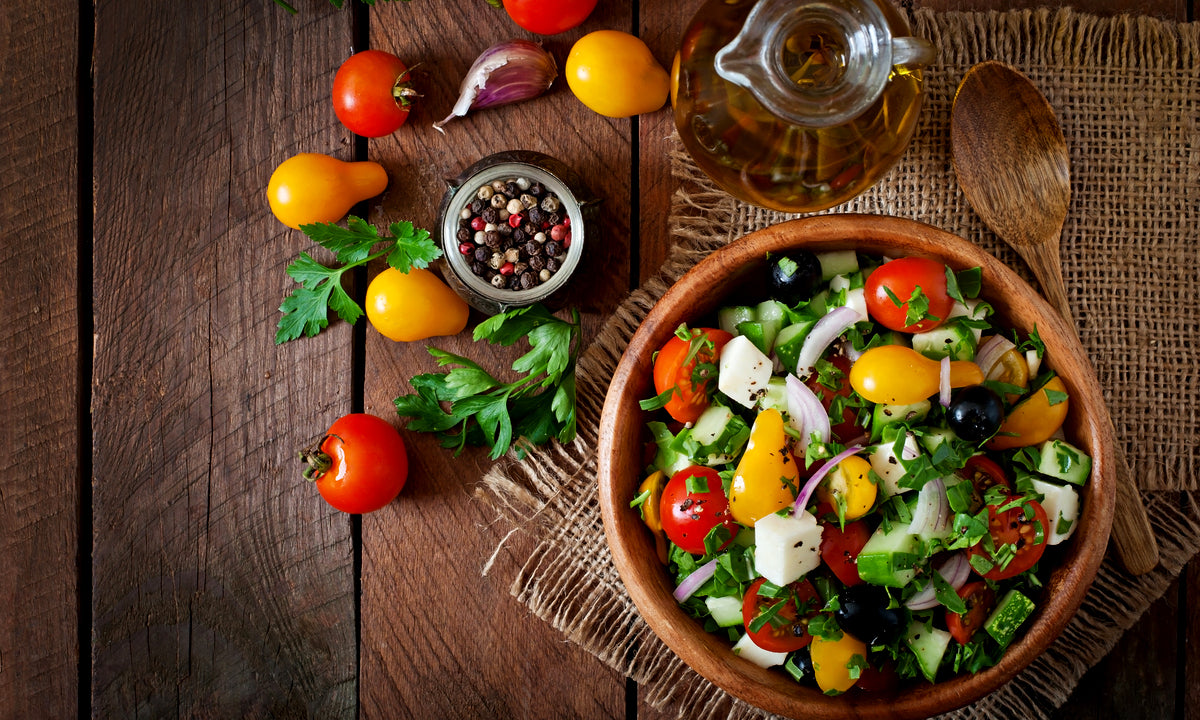Your Cart is Empty
FREE SHIPPING on US orders over $45. Save 25% With Code TAKE25 at checkout.
FREE SHIPPING on US orders over $45. Save 25% With Code TAKE25 at checkout.

As more and more research confirms the connection between nutrition and skin health, people are turning to diets to solve their skin concerns. But modern diets often become popular because of celebrity endorsements or mass marketing — rather than proven scientific evidence.
We wanted to find out if there’s a real connection between popular diets and their proposed beauty benefits. Here are 5 diets that people turn to for better skin and how they may be working (or not working) to improve skin health.
The basics: Whole30 is one of the more restrictive diets out there. The idea is that some foods may be triggers for you (cheese could be causing digestive issues, or dairy could be behind your stubborn breakouts). To investigate how your body responds to certain foods, the potential triggers are eliminated and then slowly reintroduced after the initial 30 days.
Here’s what you need to know:
Potential beauty benefits: You may notice some positive changes to your skin on the Whole30 diet. Alcohol, sugar, and dairy are some of the most common blood sugar-disrupting and inflammation-causing food groups, so eliminating them could benefit your complexion.
However, the ultra-restrictive guidelines may be overkill if your only goal is better skin.
The basics: This diet is inspired by the eating habits of people in the countries bordering the Meditterranean Sea (Italy, Greece, Spain) during the 1960’s. There is no single definition of the Mediterranean Diet, but the general premise is this:
Potential beauty benefits: This diet is packed with antioxidants that can help the skin repair itself and correct visible damage. It is also high in healthy fats (like omega-3 fatty acids), which can help fight inflammation and keep skin hydrated to minimize fine lines and wrinkles. Healthy fats also help your body absorb antioxidants and other vitamins to keep skin strong, healthy, and elastic.
The basics: These plant-based diets both shun meat, and veganism also forbids dairy and other animal byproducts. There are some variations (lacto-vegetarians, ovo-vegetarians, lacto-ovo vegetarians, pescatarians) but here are the basic do’s and don’ts:
Vegetarians
Vegans
Potential beauty benefits: You may have heard success stories about cutting meat for clearer skin, but more research is needed to be certain.
If you’re thinking about switching to a plant-based diet, talk to your doctor or dietician. A meatless diet can be healthy, but you’ll want to ensure that you’re still getting enough of certain nutrients (especially vitamin B12, calcium, iron, and zinc). Vitamin deficiencies can cause dull skin, dark undereye circles, brittle nails and even hair loss.
The basics: Short for “ketogenic diet,” this is a super low-carb, high fat way of eating. The idea is to train your body to burn fat instead of carbohydrates. Here’s how it works:
Potential beauty benefits: While it’s possible that following the keto diet may help reduce acne in some individuals (since it reduces insulin levels), this isn’t really a diet you do for your skin. The primary goal is typically body fat loss with this plan.
The basics: The basic concept of the paleo diet (also known as the caveman diet) is to eat what your ancestors ate, recreating the way of eating that hunter-gatherers presumably followed during the Paleolithic era. The concept is simple: eat fresh, whole foods and avoid anything processed.
There are several variations of this diet (fair enough, since Paleolithic humans lived on a variety of diets depending on where they lived and what food sources were available to them). In general, it tends to feature a lot of meat along with complimentary amounts of vegetables, fish, eggs, fruits, nuts, and healthy fats and oils.
On the avoidance list: all processed foods (sugar, bread, trans fats, most grains, and artificial sweeteners are out).
Potential beauty benefits: It’s no secret that swapping processed foods for fresh, wholesome ingredients can have a host of health benefits. But since the rules for the paleo diet aren’t super strict and there’s no single method, definitive scientific research on paleo and skin health is hard to come by.
It’s also worth noting that diets high in meat may negatively influence skin aging, though more research is needed.
Everyone’s skin is slightly different, so there’s no one diet that’s best for skin health across the board.
If you’re concerned that what you’re eating could be causing skin issues, you may want to try removing known triggers (sugar and dairy are often the main culprits) from your diet to identify any allergies or sensitivities.
As always, you should consult your doctor or dermatologist before making any major diet or lifestyle changes. Taking a more mindful approach to your eating habits is a great way to make sure you’re maximizing the health of your skin.